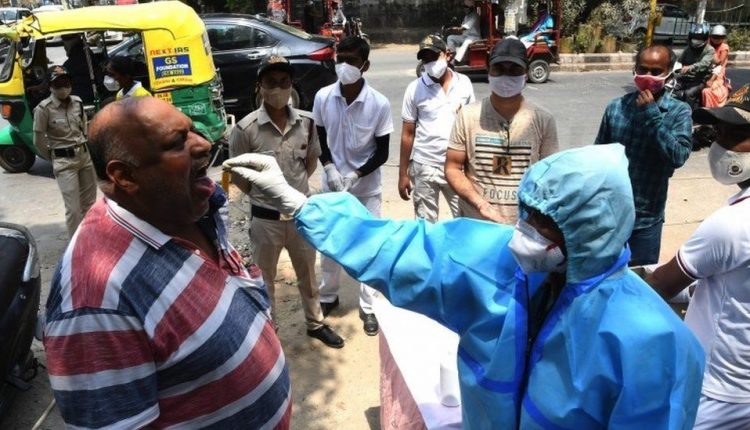GENEVA: The World Health Organization chief voiced alarm Monday at India’s record-breaking wave of Covid-19 cases and deaths, saying the organisation was rushing to help address the crisis.
-Advertisement-
“The situation in India is beyond heartbreaking,” Tedros Adhanom Ghebreyesus told reporters.
He spoke as India battles a catastrophic coronavirus wave that has overwhelmed hospitals, with crematoriums working at full capacity.
A surge in recent days has seen patients’ families taking to social media to beg for oxygen supplies and locations of available hospital beds, and has forced the capital New Delhi to extend a week-long lockdown.
“WHO is doing everything we can, providing critical equipment and supplies,” Tedros said.
He said the UN health agency was among other things sending “thousands of oxygen concentrators, prefabricated mobile field hospitals and laboratory supplies.”
The WHO also said it had transferred more than 2,600 of its experts from various programmes, including polio and tuberculosis, to work with Indian health authorities to help respond to the pandemic.
The country of 1.3 billion has become the latest hotspot of a pandemic that has killed more than three million people worldwide, even as richer countries take steps towards normality with accelerating vaccination programmes.
The US and Britain rushed ventilators and vaccine materials to help India weather the crisis, while a range of other countries also pledged support.
Since the virus that causes Covid-19 first surfaced in China in late 2019, the disease has killed more than 3.1 million people out of at least 147 million infected, according to a tally from official sources compiled by AFP.
Tedros on Monday lamented that global new case numbers have been rising for the past nine weeks straight.
“To put it in perspective,” he said, “there were almost as many cases globally last week as in the first five months of the pandemic.”
The United States remains the worst-affected country, with some 572,200 deaths and over 32 million infections, followed by Brazil and Mexico.
But India, in fourth place, has in recent days been driving the global caseload.
-Advertisement-
The country, which has recorded over 195,000 deaths, registered 2,812 new deaths and 352,991 new infections on Monday alone – its highest tolls since the start of the pandemic.
“The exponential growth that we’ve seen in case numbers is really, truly astonishing,” Maria Van Kerkhove, the WHO’s technical lead on Covid-19, told reporters.
She warned that India was not unique, pointing out that a number of countries had seen “similar trajectories of increases in transmission.”
“This can happen in a number of countries … if we let our guard down,” she said.
“We’re in a fragile situation.”
Meanwhile, the Indian crisis has taken a toll on the Covax programme aimed at providing equitable access to Covid-19 vaccines, with a particular focus on 92 poorer nations.
Prior to the surge, India was exporting tens of millions of AstraZeneca shots made domestically by the Serum Institute through Covax, which is co-run by the WHO, the Gavi vaccine alliance and the Coalition for Epidemic Preparedness Innovations (CEPI).
But once cases started surging, New Delhi froze exports – including to Covax – to prioritise India.
This has left Covax short 90 million doses that had been intended for 60 low-income countries in March and April, the WHO and Gavi said.
“Those have not been made available given the crisis in India. Now they’re being used domestically,” Gavi chief Seth Berkley told the briefing.
Covax, he said, was “looking at other options” while waiting for the supplies to resume.
Among other things, the Covax partners have appealed to countries that have excess vaccine doses to share them with the programme.
Berkley said that it was “early days” on those discussions, but so far France, New Zealand and Spain had vowed to share some of their doses.
To date, some 40.8 million Covid-19 vaccine doses have been distributed to 118 countries and territories through Covax.-AFP

